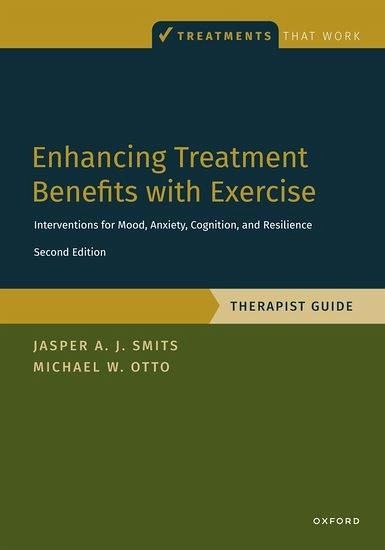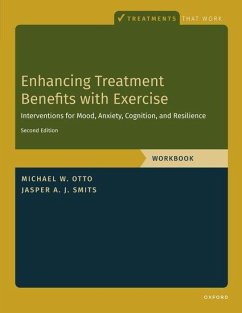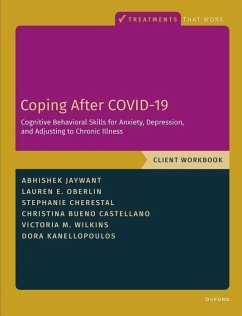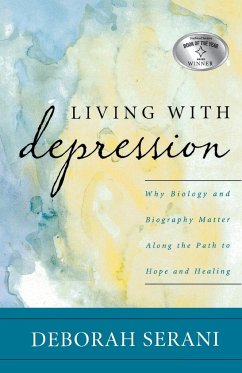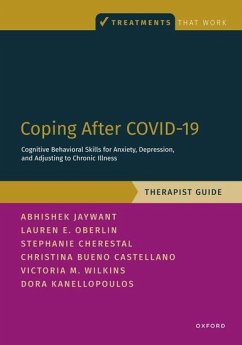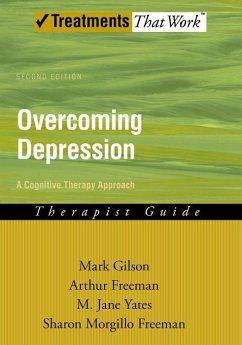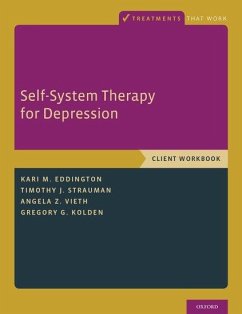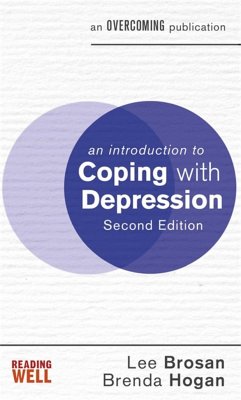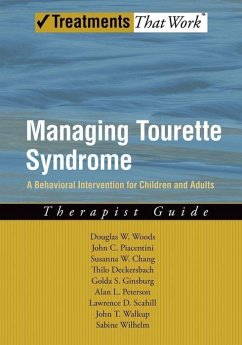Jasper A. J. Smits (Professor, Professor, Department of PsychologicMichael W. Otto (Professor, Professor, Department of Psychological
Broschiertes Buch
Enhancing Treatment Benefits with Exercise - Tg
Component Interventions for Mood, Anxiety, Cognition, and Resilience
Versandkostenfrei!
Versandfertig in über 4 Wochen
Weitere Ausgaben:

PAYBACK Punkte
25 °P sammeln!




Exercise has powerful effects on mental health. This therapist guide, and the accompanying workbook, provide an indispensable resource for practitioners who wish to expand their therapeutic range to include exercise-based interventions
Jasper A. J. Smits, PhD, is Professor of Psychology and Director of the Anxiety & Health Behaviors Laboratory at the University of Texas at Austin. He specializes in the development and evaluation of behavioral interventions for anxiety and related disorders. With respect to exercise, he has been involved in research testing whether aerobic training can provide learning experiences (e.g., feeling safe around bodily sensations, reappraisal of stressors) essential to attaining patients' treatment goals. Following up on initial successes in this area among adults with anxiety motivated to quit smoking, he has developed a YMCA exercise-based smoking cessation intervention that is currently undergoing evaluation. Dr. Smits has authored over 250 publications, frequently provides workshops on exercise for mental health, and maintains an active private practice. Michael W. Otto, PhD, is Professor in the Department of Psychological and Brain Sciences and Director of the Translational Research Laboratory at Boston University. He has had a major career focus on developing and validating new psychosocial treatments, with a focus on treatment refractory populations including those with mood, anxiety, and substance use disorders. His work includes a translational research agenda investigating brain-behavior relationships in therapeutic learning. Dr. Otto's focus on hard-to-treat conditions and principles underlying behavior-change failures led him to an additional focus on health-behavior promotion, including investigations of addictive behaviors, medication adherence, sleep, and exercise. Dr. Otto has published over 475 articles and 20 books spanning his research interests, and he was identified as a "top producer" in the clinical empirical literature as well as an ISI Highly Cited Researcher. He received the APA Society of Clinical Psychology award for Distinguished Scientific Contributions to Clinical Psychology, the Elizabeth Hurlock Beckman Award from the American Psychological Association for Mentoring, and the Toy Caldwell-Colbert Award for Distinguished Educator in Clinical Psychology. His leadership positions include serving as President of the Association of Behavioral and Cognitive Therapies, and President of Division 12 of the American Psychological Association.
Produktdetails
- Treatments That Work
- Verlag: Oxford University Press Inc
- 2 Revised edition
- Seitenzahl: 152
- Erscheinungstermin: 9. August 2024
- Englisch
- Abmessung: 255mm x 179mm x 10mm
- Gewicht: 292g
- ISBN-13: 9780190946500
- ISBN-10: 0190946504
- Artikelnr.: 70203899
Herstellerkennzeichnung
Libri GmbH
Europaallee 1
36244 Bad Hersfeld
gpsr@libri.de
Für dieses Produkt wurde noch keine Bewertung abgegeben. Wir würden uns sehr freuen, wenn du die erste Bewertung schreibst!
Eine Bewertung schreiben
Eine Bewertung schreiben
Andere Kunden interessierten sich für



